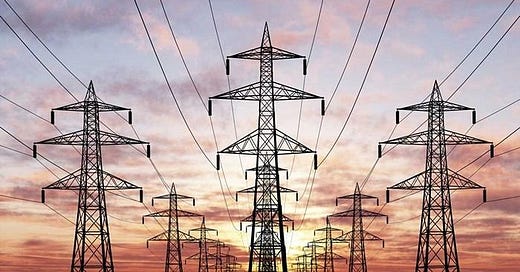Another Circular Debt Plan - this time it's slightly different!
Increasing electricity prices would electrify the opposition!
Dear Readers, AoA
Well, Hafeez Shaikh is out & Shaukat Tareen is in. Prime Minister must have had his reasons for such an abrupt approval. I believe 1) increasing electricity prices 2) further salary taxes 3) massive increase in the tax target could have been the reason. Hence, team Tabish - comprising Hammad Azhar & Shaukat Tareen - are leading the renegotiations on Circular Debt Plan.
To recall, “circular” debt moves in circles. If one party is affected (Power producers: not being paid for electricity sold), other one is in distress (PSO: who supplied the fuel). It does begin with government’s inability to a) recovery full bills b) reduce theft c) control Transmission & Distribution (T&D) losses d) expensive contracts. Part of the puzzle if fixed. But there is no time for delaying the $15b hole in the economy’s Balance Sheet. Let’s read the latest version of the strategy;
The New Plan
Rationalization of Taxes: Rs 85-100b worth of saving is expected after streamlining doubled taxes at the consumer end. For instance, Sales tax applied on electricity supplied was Rs 100b while consumers pay double for the same units. In addition, taxes on fuel component of tariff would be rationalised (reduced?) to save Rs 0.85 to Re1/unit worth of savings from the earlier committed Rs 5.36 tariff hike.
Negotiated Take-over of old IPPs: Tabish had recently offered to buy-out HUBCO’s old plant for Rs 65b in exchange of Rs 260b worth of capacity payments until 2027. In return, HUBCO would convert two units to produce 600MW from Thar Coal & use remaining for water desalination plant providing 300m gallons/day. Note: Karachi’s daily demand is 600m gallons/day. Water is to be priced at Rs 0.5 per gallon & Thar coal is to be renegotiated at $25/ton from $50/ton.
Closure of public sector plans: A total of 3,500 MW plants would be shut down in 18 months & approximately half of those are already shut. These reduce capacity burden because of their “take or pay” contracts. In other words, take “electricity” from us, or “pay” even if you don’t.
In his previous interviews, Tabish Gauhar has highlighted several ways to reduce the Circular Debt;
Targeted subsidy for the poor
Keep the prices low for increased consumption
KAPCO to be converted to hybrid take-and-pay & take-or-pay for 5-7 years
Renegotiating the debt tenure including the CPEC ones
Public Private Partnership for DISCOs: involve provinces & local government
Management Contract: % reduction in T&D, you get % share in savings
Staggering Capacity additions: to buy breathing space
Debt restructuring of 2400MWs of LNG plant
Switch from gas to electricity for captive power generation
Industrial Support Package: cheaper electricity till Jun 2020 to spur growth
Share Rs 200b DISCO losses & Rs 150-200b tariff subsidy with provinces
IPPs renegotiation: ending dollar based returns & reducing IRRs
Develop wholesale electricity commodity exchange to end Single Buyer Market & move towards competitive electricity market, where user can choose to pick th supplier
Details of his game plan have been chalked out in various interviews. Best one is the one in his own words https://narratives.com.pk/thinktank/powering-the-power-sector/. Given the significance of Power Sector to Pakistan’s economic revival - or PM’s election campaign - Tabish Gauhar is of utmost importance. Hence, despite tendering his resignation, he’s been called back to lead the show.
Your author also believed in similar steps last year;
Delay in passing the tariff in Covid had cost the government Rs 225b worth of Circular Debt. This has happened under this government’s watch. Circular Debt has increased for Rs 1.3t to Rs 2.3t ($15b) already.
Just imagine if we had spend a few bn dollars from the Circular Debt on education, technology, digitisation & export diversification. In fact, entire ML-1 Railway line could have been revamped. Alas, no ifs no buts. But the phrase “circular debt” needs a logical end. Create a plan & stick to it. There is no time for inaction. Every day’s delay is causing losses worth billions.



